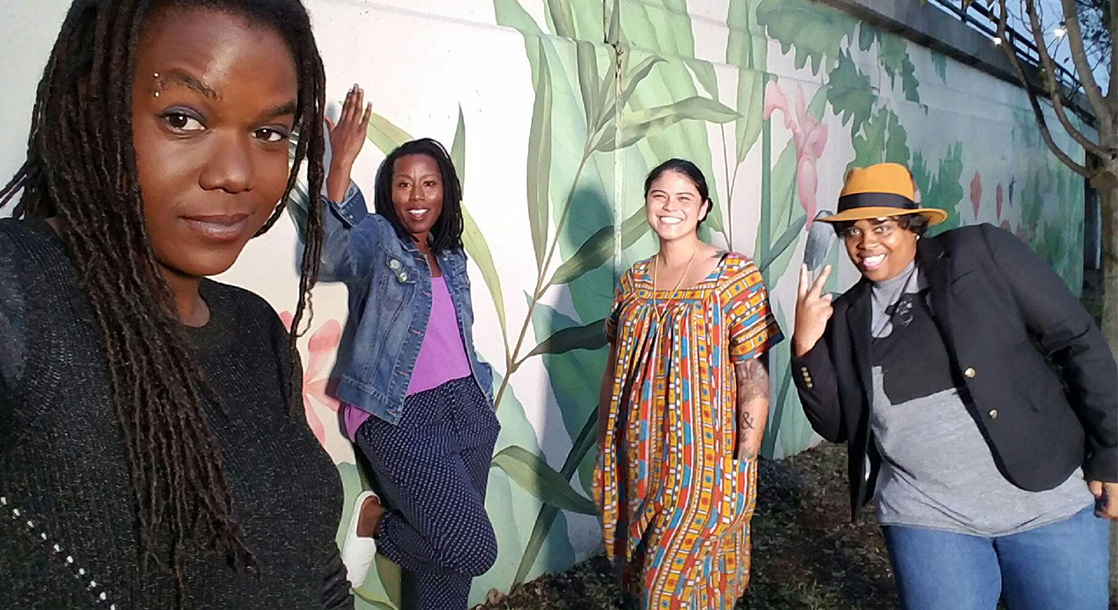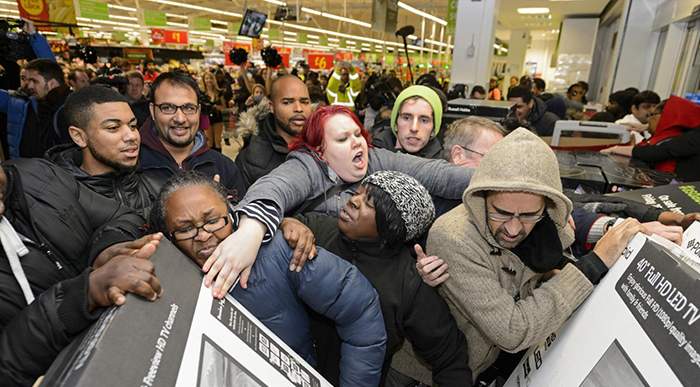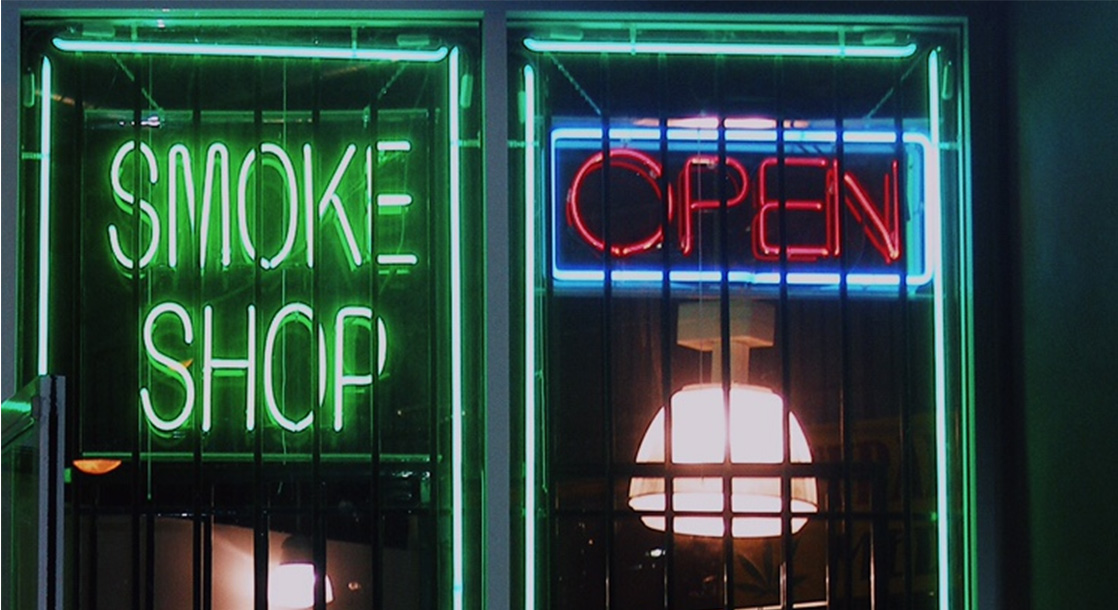Photos courtesy of Supernova. From left to right: Andrea Unsworth, Tsion Sunshine Lencho, Nina Parks, and Amber Senter.
Tired of finding themselves the only women of color in the room at cannabis conference after cannabis conference, Amber Senter, Nina Parks, Andrea Unsworth, and Tsion Sunshine Lencho joined forced in 2015 to form Supernova—an Oakland-based but nationally-focused organization trying to break down barriers for people of color in the legal weed industry. The four women, all cannabis entrepreneurs themselves, began holding free business workshops, panel discussions, and networking events aimed at educating those most targeted by the war on drugs — low-income communities of color — on how to set up shop in an industry projected to hit $50 billion in the next ten years.
Supernova is committed to creating a diverse and equitable industry at ground zero. The group’s ability to match business interests with concrete social justice goals have earned them the ears of some of the country’s top policymakers, and the founders have consulted with Pennsylvania, Maryland, and the city of Oakland, as each government hammered out details of their medical and recreational licensing.
For Supernova, diversity doesn’t just mean meeting a quota or hiring people of color as budtenders. It means creating economic growth for communities directly impacted by the drug wars, seeing people and women of color owning and operating their own cannabis businesses, and giving people with criminal records and marijuana convictions a second chance in the legal weed industry.
MERRY JANE caught up with Supernova founder and expert cannabis lawyer, Tsion Sunshine Lencho, to talk about what diversity really means in the legal cannabis industry, how the group is encouraging states aiming to legalize marijuana to provide reparations for the war on drugs, and what the founding members of the organization are working on outside of Supernova.
MERRY JANE: To start, can you explain Supernova’s mission statement for me?
Tsion Sunshine Lencho: Supernova women is an organization founded to help people of color become self-sufficient shareholders in the cannabis economy. We were founded in 2015 in reaction to what we had seen in the industry, which was that access to quality and accurate education and information tailored to our communities was lacking, particularly in terms of it being affordable. So we, as operators and service providers in the industry, decided to come together to test out a theory: there isn’t a lack of ownership or people of color in the community because we’re not interested, but because there’s a lack of people trying to include us. And from that we have grown into this organization that is still figuring out what exactly we think we can best provide, but our main focus has been education and the dissemination of information. If people have facts, they are better to do their own self-advocacy on the local, state, and national level.
What kind of events and actions is Supernova currently organizing?
Right now, our main focus is our panel discussions. The Shades of Green series is a general layout of the cannabis industry in that state or locality. We held three in 2016 throughout the country: Oakland, Southern California, and Boston. We went to different jurisdictions and talked about what was going on at the local and state level.
Then, we have social media. When you’re throwing an event nationwide and still operating, it’s hard to commit to a particular date and time. And this industry is changing so rapidly that you need to almost have yourself in a digital space more so than in a physical or analog space, to make sure you’re reacting a timely manner. In November, during the election, there were a number of ballot initiatives [to legalize medically and recreational marijuana] around the country, and getting to each one wasn’t feasible. We tried to put a focus on people connecting and organizing locally.
There have been various organizations that have popped up as medical and adult-use have become more widespread in our country. We use our platform to direct people to those organizations. For example, Minorities for Medical Marijuana is an organization in Florida. They host lobbying days, etc. It’s the most accurate way to find out about what’s happening on the ground in Florida. So to the extent that we can help them out with what they’re doing, we do that. The idea is to make sure that we are providing people with insight into operations so they can feel empowered to take what we do to their own cities and counties.
When you first started Supernova WOC, it seemed like you were one of the only voices in the industry advocating for people of color. Is that starting to change?
What’s been really exciting since last year is that by traveling around to different states and cities, I’m introduced to one person and they introduce me to another person and they’ve already heard about the work we did in California. It’s a great way of organically growing a network of mostly women in the cannabis space who are actually doing local advocacy. We can share our own experiences and learn how to operate in different jurisdictions and to bridge public perceptions with the reality of cannabis.
If we’re talking about what’s coming up this year I’m really excited to be from the DC area and to previously have worked in arts advocacy here. [This will help me] meet people here who are throwing festivals, fairs, and info sessions here in the area. Most recently, I’ve made contact with Caroline Phillips, who runs the National Cannabis Festival. And Supernova is going to help partner with the National Cannabis Festival as one of the advocacy organizations. Having spoken with her and seeing what she’s trying to do in the area — where I would be fearful of trying to operate a business here — it’s really the courageous leaders who aren’t focused on bottom dollar but are really focused on community that we’re really looking forward to getting know better and work with.
Have you seen a big change in attitude in the industry since Trump took office?
I think there’s been a lot of speculation. I think people have been trying to read the tea leaves. I think it’s better to react than to predict because one thing this administration has been is unpredictable. One thing I have been strengthened by is the number of people in the industry who have [been] supportive of what Supernova is doing and are willing to connect us with resources. Previously, I was asked what advice I would give to people who are thinking about the industry but are fearful of our administration, and I truly feel the more people who come out as being interested in or stakeholders in this industry, the harder it’ll be to curtail our innovation as an industry.
And while the history and legality of policing in America may not be changing fast enough for us, I think we cannot use that anymore as an excuse to stifle ourselves and hold ourselves back. Another thing this administration has done for me is caused me to double down on my convictions. Usually it’s when you know you’re getting closer to the right outcome that people push harder to against you.
Supernova was involved in consulting with the City of Oakland over their Equity Licensing, an innovative program looking to distribute business licenses to people in Oakland communities most impacted by the war on drugs. How did that program come about and what other policies would you like to see when it comes to creating a more diverse and equitable cannabis industry?
I want to be clear about Supernova’s role in the Equity Program. Supernova and I in particular as the Mayor’s appointee to Oakland’s Cannabis Regulatory Commission worked very closely with Darlene Flynn, the city’s Race and Equity Director. When the Equity program and proposal came out, I immediately contacted her to let her know it was really well thought-out and well-reasoned and exactly what we had hoped to see and was actually in line with some of our recommendations as non-equity experts.
What were some of your recommendations?
There were things like accessing loans, walking people through the licensing process, things like expanding which specific police beats were eligible for the Equity License programs… things we were advocating for without having the equity data.
I would love to see people replicate Oakland’s policy with Darlene Flynn’s recommendations. In Oakland, you had an administrator look at the history of the war on drugs. She took it back not to when voters passed the first initiative decriminalizing cannabis possession but took it back even further, to when they were still raiding and disproportionately arresting and convicting black people in Oakland. And it was those communities that were included in the Equity Licensing requirements, and that model can be tailored for other cities. The Oakland Equity Licensing is groundbreaking and very historic because it is looking to rectify a wrong in an economic sense.
Do you think because Supernova is having these conversations nationally, and is in touch with other local organizations representing people of color in cannabis, that similar policies are on the table outside Oakland?
I hope so. I really hope so. I’m on the California Growers Board with some people who are operators in Los Angeles. As Oakland’s [program] has been rolling out, we’ve been talking about whether something like that is feasible in a city like LA, or Compton, or other areas of the country.
When you have a state like Pennsylvania include a diversity, inclusion, and community-benefits plan in their medical licensing application process, you’re seeing incremental steps towards people understanding that diversity is more than just an economic entitlement. It’s an opportunity to do economic development and to stimulate local economies. And people who may not have had the same economic opportunities as other communities — because of redlining, employment discrimination, etc. — it’s about getting them on board, too.
One of the things I’ve always really liked about Supernova is when you talk about diversity, you’re not just talking about businesses employing people of color. It’s about employment and economic redevelopment for communities as a whole. Can you define diversity for me?
Oh man. Define diversity. Y’know, I’m paraphrasing, but one of our court justice’s said it’s hard to define but I know it when I see it… One thing Supernova is completely transparent about is when we’re talking about legalizing a business where a number of people who looked a certain way went to jail for it, to me diversity in that context means that those people will be owners and operators. Whether that means it’s a one for one, one person owning one business, I don’t know if that works with the kinds of economies and structures we’re creating. But if we have opportunities to create [POC] ownership in businesses and for co-ops and collectives to actually be encouraged… I want to see more people in this country feel they have an actual economic and social interest in the cannabis industry.
Supernova isn’t just pushing for government policy to change, you’re also asking cannabis businesses to be more thoughtful about equity and diversity. For example, at the Shades of Green panel I went to last year, Supernova advocated for cannabis business to advertise at job fairs where people with criminal records might be looking for work…how do you want to see the industry tackle diversity, business by business?
One thing that’s been beneficial from the standpoint of the “green rush” is that these topics are being discussed by people who haven’t really thought about before. So, with state’s like Pennsylvania encouraging diversity of contracting and employment when giving out licenses, you suddenly hear all these investment bankers and Wall Street finance people trying to figure out diversity for the first time because it’s actually mandated as part of the regulation. I think it’s been a good couple months of educating people on their implicit biases… teaching people how to write and describe job functions in a way that’s more inclusive, etc. And we have been consulting with people who are staffing agencies and building out job fairs to think about how they do their sourcing.
You and your other two cofounders do a bunch of things on top of Supernova. For example, you sit on the the Board of the California’s Grower’s Association. Give me a rundown of what else is on your plate and what you’re excited about.
I’ll start with Amber Senter cause it’s super exciting. Amber was formerly Chief Operating Officer at Magnolia Wellness, a Compassionate Care Dispensary in Oakland. Amber has since left Magnolia to work full-time on Leisure Life, her own house of brands. It’s an indica-dominant lifestyle brand that’s been doing really, really well. As a patient herself, Amber really knows the demographic, and it’s great to see her lead in that respect. She’s also partnering with some other people in the industry in California Rolls, which is a pre-roll company.
And at the same time, because we don’t know how to stop, Amber and I launched Long Dog Consulting, which is a cannabis consulting company where we help build and grow cannabis companies and brands around the country. So we just finished up the Pennsylvania licensing process I was talking about and we’re really excited to say our client really enjoyed working with us and hopes to work with us some more.
Nina Parks is doing really well with Mirage Medicinal. In addition to being really active with the San Francisco legalization task force and the California Cannabis Delivery Alliance, she and her brother have started to build out their holistic health and wellness services. So it’s not just a delivery company anymore. They have events. You can go for either new moon or full moon yoga which features many of the providers that they carry. It allows people to build community and really take a break and think about how you’re using the plant.
Andrea Unsworth runs Stash Twist, a medical cannabis brand and delivery service in the Bay Area which recently launched its own house label cannabis brand. She's also partnered with other women of color to launch regular wellness events while advocating for increased understanding of delivery service operations on the state and local level.
And what are you working on outside of Supernova?
I’m working on a couple of brands that I won’t announce yet because I want to fully build them out. The reason I came to the industry is because I wanted to be an operator. I’m on the board of the California Growers Association with the intent to open a nursery and help the casual cultivator, the at-home cultivator, who doesn’t want to spend time building out an elaborate system and just wants to garden. My focus for the next year is empowering people to grow and take away some of the mysticism surrounding the plant. To help them get closer to actually growing their own medicine in-house.
What’s the best way for people to get involved with Supernova right now?
Instagram and Facebook are best ways right now. We’re doing a full revamp of our website. And a lot more collaboration with existing organizations. In terms of physical events, Amber and I will be in Chicago the first week of April and hosting an informal kickback on Wednesday, April 5. And on July 22, we’ll be hosting a day-long summit in Long Beach along with South Pot Images.
Follow Julia on Twitter














